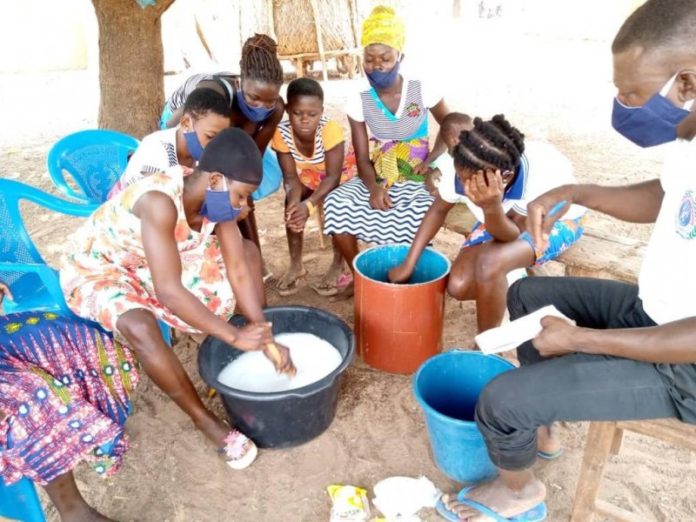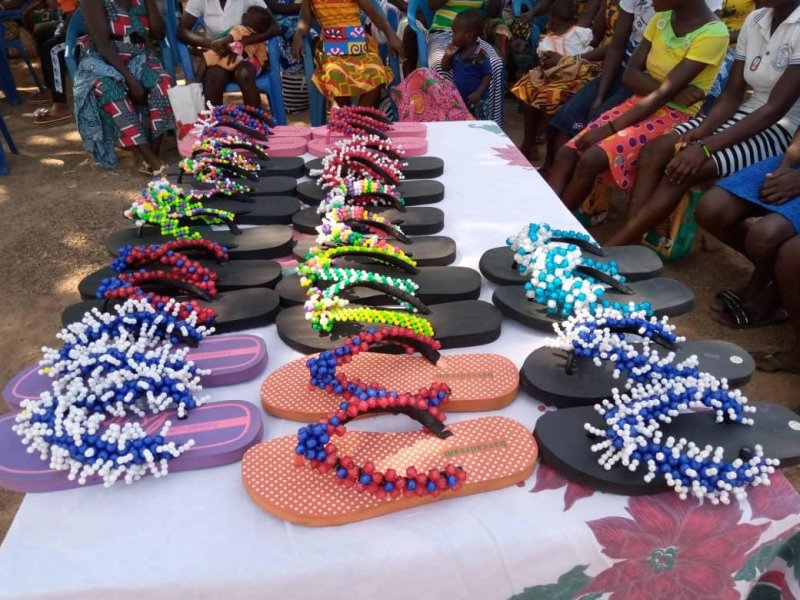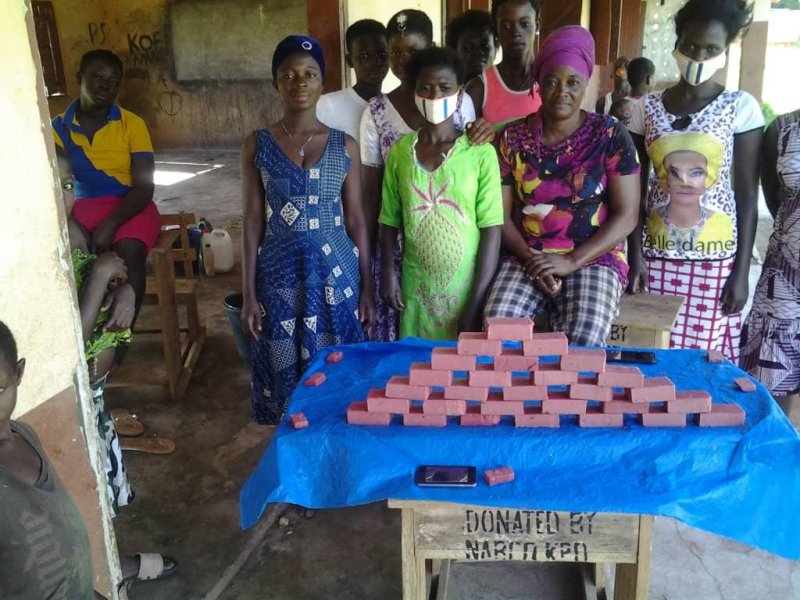STAGE PROJECT : Nanumba South and Kpandai Districts of Ghana are communities that have high levels of poverty, with deep-seated traditional and social norms existing towards gender roles, including early marriage, teenage pregnancies, and high core burden.
According to a Poverty Mapping Report released by the Ghana Statistical Service in May 2015, 76.9 percent of the people in the Kpandai District representing 82,712 persons were poor while 17.6 percent of the people in the Nanumba South District representing 30,569 persons were also poor.
The result is a negative impact on girls’ ability to progress in education and gain decent employment. Girls in the two districts have limited voice within the community, exacerbating these problems.
Subsistence agriculture is the mainstay of residents and many families struggle to meet basic needs, let alone invest in their children’s education.
The STAGE project
It is against this backdrop that the STAGE project was initiated. The project, which began in 2018 and will end in July 2022, is implemented by the Regional Advisory Information and Network System (RAINS), a non-governmental organization, in partnership and a consortium led by World Education Inc and funded by the United Kingdom’s Foreign Commonwealth and Development Office.
The project consists of two tracks for marginalized girls – a formal track for girls aged 10-14, and a non-formal track for girls aged 15-19, who are transitioned into employment after six months of literacy, numeracy, and vocational skills.
A total of 554 girls have graduated from the first cohort and 701 girls of the second cohort are in advanced stages of their journey to literacy and employment.
A third and last cohort will feature a total of 682 girls to benefit from the project. In all, 1,937 girls will benefit from the project in 75 communities across the two districts.
Skills acquisition
Paulina Lanjado a resident of Montanaya, in the Nanumba South District of the Northern Region was 10 years when she dropped out of school.
At the time, she was in class four and was young when her mother died. Her father too has not been well. Surviving as a child and without any support, things became tough for Paulina as she struggled to make ends meet.
In the process, she became pregnant and now a mother of one at age 18. In 2020, she heard about a project, which sought to train young vulnerable girls in vocational skills.
She expressed interest in the training and was selected as a beneficiary.
As part of the training, she learned soap making for six months after which, in May 2021, she was given start-up kits such as quantities of chemicals for making bar soap and liquid soap, cutting boards for bar soap, and hydrometers to start making her soap to sell.
In June 2021, she put her newly acquired skills to practice and produced soap, which was well patronized by members of her community.
She told the Ghana News Agency that marked the beginning of a change in her life for the better. She said she was enjoying her new business, and planned to become a big player in soap production in her community within the next two years.
Another young lady, Pona Ngemabi, a 20-year-old mother of one from Knyinkpa in the Kpandai District of the Northern Region, did not go to school because of financial challenges.
Life was tough for her and her situation was compounded by the fact that she did not have any means of earning income.
Pona, just like Paulina, also heard about a vocational skills training project where some vulnerable females in her community were being selected as beneficiaries.
She joined and learned sandals making. After six months of undergoing intensive training, she was given start-up kits such as different kinds of beads, needles, sandals, and pliers in May 2021 to start her business as a sandals maker.
In June 2021, she made 10 sandals and sold them in her community. She said this marked a turning point in her life. Her plan now is to expand her business and own stores in the Kpandai Market to sell her sandals.
Paulina and Pona were not the only vulnerable girls in the Nanumba South and Kpandai Districts, who had had their life situations changed for the better.
A total of 554 others in the two districts were also trained in various vocations and given start-up kits to set up their businesses as part of a project dubbed: Strategic Approaches to Girls’ Education (STAGE), and they are making good use of their newly acquired skills.
The STAGE project so far
So far, a total of 554 girls in the two districts have undergone six months of accelerated learning on literacy and numeracy together with life skills training as first cohort beneficiaries and have been supported to transition into the world of work.
They were given start-up kits comprising assorted combs, assorted hair extensions, scissors, hair food (for hairdressers), different kinds of beads, needles, sandals, pliers, fishing lines (for beads makers), chemicals for making bar soap and liquid soap, cutting boards for bar soap, hydrometers amongst others (for soap producers) to start their businesses.
Also, a total of 701 girls being beneficiaries under the second cohort of the project have undergone various vocational skills training in the areas of soap production, sandals making, hairdressing, and beads making in the two districts to equip them with self-employable skills.
Testimonies from Key Stakeholders
Key STAGE stakeholders, at a recent engagement at Wulensi in the Nanumba South District, shared their observations and expectations of the STAGE project.
The engagement was aimed at bringing on board district level structures for sustainability even after the project’s lifespan in the two districts, discuss challenges on the field and solicit support for the project especially through ongoing interventions at the district assembly.
Challenges facing beneficiaries/project
For any good intervention, there are bound to be challenges and the STAGE project is not an exception. Few selected beneficiaries on the first track have dropped out.
This means they may not gain any opportunity again to acquire employable skills and it has been observed that some beneficiaries, who acquired vocational skills, sometimes find it difficult to get raw materials to practice their skills.
Raw materials used to produce soap and sandals are not readily available in shops in the two districts. Beneficiaries rely on people, who travel to city centers such as Tamale to buy such materials for them, and this sometimes takes a toll on their work.
The way forward
In this era of global competitiveness, without formal education, and sound vocational and technical skills, one cannot make ends meet, let alone be assertive in society.
Not only has the STAGE project come to secure the future of girls in the two districts, but also to break the barriers of marginalization against them.
There is a need for all stakeholders in the two districts and the country at large to support the project to succeed.
All the beneficiaries should see the project as their last hope and be serious about its approaches to transform their lives for the better. This way, the country will be on the right path to addressing violent-related issues and marginalization against girls by empowering them to take their rightful places in society.
Source: GNA




